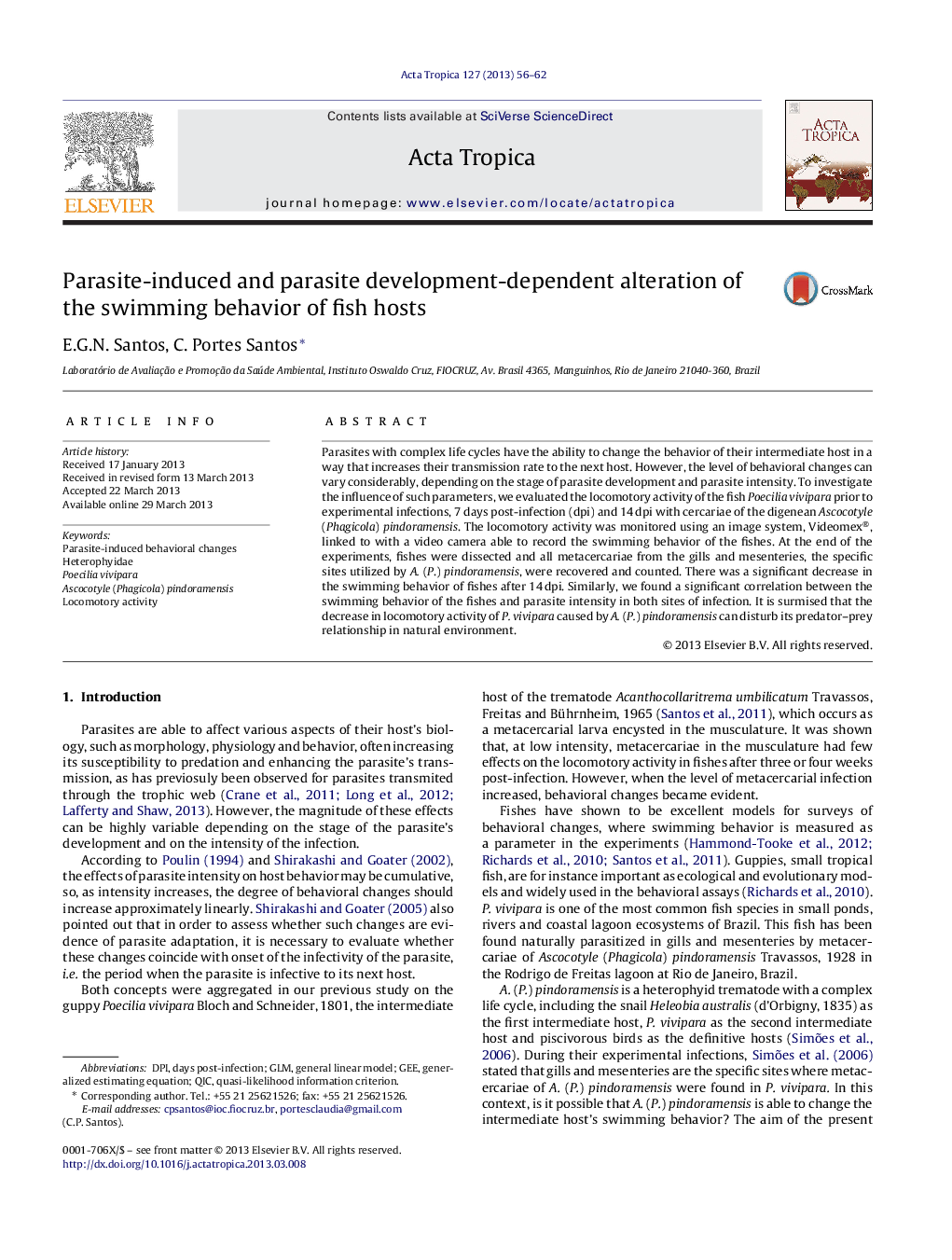| Article ID | Journal | Published Year | Pages | File Type |
|---|---|---|---|---|
| 3393954 | Acta Tropica | 2013 | 7 Pages |
•The locomotory activity of Poecilia vivipara was monitored using an image system.•Uninfected vs experimentally infected fish with A. (P.) pindoramensis were studied.•Distance traveled, speed, ambulatory, stereotypic and resting time were measured.•Swimming behavior of fish decreased significantly after 14 days post-infection.
Parasites with complex life cycles have the ability to change the behavior of their intermediate host in a way that increases their transmission rate to the next host. However, the level of behavioral changes can vary considerably, depending on the stage of parasite development and parasite intensity. To investigate the influence of such parameters, we evaluated the locomotory activity of the fish Poecilia vivipara prior to experimental infections, 7 days post-infection (dpi) and 14 dpi with cercariae of the digenean Ascocotyle (Phagicola) pindoramensis. The locomotory activity was monitored using an image system, Videomex®, linked to with a video camera able to record the swimming behavior of the fishes. At the end of the experiments, fishes were dissected and all metacercariae from the gills and mesenteries, the specific sites utilized by A. (P.) pindoramensis, were recovered and counted. There was a significant decrease in the swimming behavior of fishes after 14 dpi. Similarly, we found a significant correlation between the swimming behavior of the fishes and parasite intensity in both sites of infection. It is surmised that the decrease in locomotory activity of P. vivipara caused by A. (P.) pindoramensis can disturb its predator–prey relationship in natural environment.
Graphical abstractEvaluation of the locomotory activity of the fish Poecilia vivipara prior to experimental infection, 7 and 14 days post-infection with cercariae of Ascocotyle (Phagicola) pindoramensis.Figure optionsDownload full-size imageDownload as PowerPoint slide
